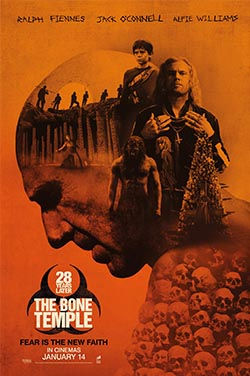The Suicide Squad Movie Review
- Rob Cain

- Aug 5, 2021
- 4 min read

Released: 5th August 2021 (UK and US)
Length: 132 Minutes
Certificate: 15
Director: James Gunn
Starring: Margot Robbie, Idris Elba, Joel Kinnaman, John Cena, Sylvestor Stallone, David Dastmalchian, Daniela Melchior and Viola Davies
Since ditching the model of interconnected releases, the DC Extended Universe has been on an upward trajectory. In previous years, the franchise’s bid for an unconventional flick that focused on the villains had a lot of potential. Instead, it ranked among the worst efforts in the series thanks to studio interference and poor editing. Five years later and the follow-up is getting a do-over; this time it’s the long-sought-after James Gunn in the directing chair. The new version of Suicide Squad isn’t a prized effort, but it’s definitely a massive improvement.

Much like the 2016 film, US intel officer Amanda Waller (Viola Davies) brings together a pack of unsavoury criminals to complete a black operation. This time a collection of unethical research data is locked away in a laboratory on the island of Corto Maltese. The opening seems like a backhanded jab at its predecessor with one set of characters quickly lead to slaughter on the beaches. Fortunately, the group we do follow is far more engaging; consisting of Bloodsport (Idris Elba), Peacemaker (John Cena), King Shark (voiced by Sylvester Stallone), Polka-Dot Man (David Dastmalchian) and the Ratcatcher (Daniela Melchior). The film wastes no time on setups or introductions, instead delivering information on the fly. It cuts between the frontline and the mission control, occasionally pausing to let the characters banter with each other. What makes the comedy work is how it goes beyond simple dialogue; often it’s the incompetence of the team and their reluctance to work together that brings out the humour. This is something the first film lacked as it relied too much on the basic craziness of the cast. On top of all that, the central plot diverts away from the tried and true, focusing on a grottier setting ruled over by a military dictatorship. It really sets the film apart from those grander confrontations between hero and villain. At points the exposition does get a little overbearing as the finer details need to be explained to both the characters and the audience. Other than that, you’ll remain invested.

The characters of the original Suicide Squad were extremely lacking and the second goes a long way to make amends. While at first, he appears to be a mere replacement for Will Smith’s Deadshot, Idris Elba really comes into his own as Bloodsport; a far more entertaining and developed character. He’s a very sarcastic and reluctant leader, but slowly forms a sense of camaraderie with the others. John Cena trades wits with the returning Joel Kinnaman for the role of straightforward military grunt, but this time their competing attitudes to the mission deliver more depth than you’d expect. For her first major role, Daniela Melchior does a great job of getting the audience invested in Cleo Cazo; she’s definitely the heart of the film, generating a connection between herself and Bloodsport. Margot Robbie’s Harley Quinn is also back and she once again provides a charismatic presence on-screen. Easily the most notable upgrade is how every character gets their own moment in the spotlight; Gunn has always proven himself skilled in this area and these sequences are visually coded to each member of the team. Like many ensemble films, The Suicide Squad can trip over itself when it comes to balance; Peter Capaldi’s The Thinker is rather limited and a band of revolutionaries led by Alice Braga’s Sol Soria often feel like window dressing. Still, what’s here does make an impression; the way the band of misfits comes together at the conclusion is earned and not all of them make it through alive.

In contrast to the zany, neon-drenched style of the original, The Suicide Squad goes for a more washed-out palette that ditches bright primary colours; it brings to mind an edgy seventies aesthetic and sells the action very well. The camerawork is very proficient, rotating around the action without losing sight of the anti-heroes at its centre. Standard military assaults give way to slower infiltrations, eventually culminating in an outlandish climax that’s well suited to the film’s goals. Across the board, the trail of bloody carnage delivers a sharp edge to the proceedings. Slow motion is often employed to give each character their time to shine; Harley Quinn escapes captivity in a colourful explosion of flowers and King Shark has a more peaceful moment in a serene aquarium. In another welcome change, the soundtrack is also vastly improved; rather than a set of popular tracks thrown in for marque value, we have a varied score from John Murphy that complements both characters and set pieces. All told, The Suicide Squad feels like a coherent film and not a project hastily chopped up and glued together.
Like Aquaman and Shazam before it, The Suicide Squad continues the DCEU’s journey of improvement. In effect, all the parts that didn’t work have been trimmed off and the new elements have been pushed to the forefront with a far more committed vision. The result is a highly entertaining production let down by some weaker side characters.
Rating: 3.5/5 Stars (Good)










Comments